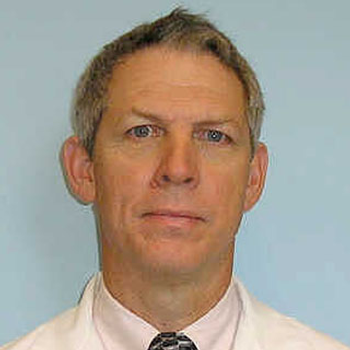Cervical Polyps Overview
Learn About Cervical Polyps
A cervical polyp is a small, benign (non-cancerous) growth that develops on the surface of the cervix or within the cervical canal. The cervix is the narrow, muscular “neck” of the uterus that connects the main body of the uterus to the vagina. Polyps are typically finger-like or teardrop-shaped growths that are attached to the cervical surface by a stalk. They are usually bright red or purplish in color, have a soft texture, and can range in size from just a few millimeters to several centimeters. A woman may have one or multiple polyps.
To understand how a cervical polyp forms, it is helpful to use an analogy. Think of the smooth, velvety lining of your cervical canal as a curtain. A cervical polyp is like a small, decorative tassel that has grown out from the fabric of the curtain. It is made of the exact same material as the curtain itself, fibrous connective tissue, blood vessels, and the normal mucus-producing glands of the cervix. It is simply an overgrowth of this normal tissue, not a foreign or dangerous growth. Because this “tassel” is rich in blood vessels and hangs freely, it can be delicate and may bleed easily when disturbed, which can sometimes cause symptoms.
There are two main types of cervical polyps, classified by where they originate:
- Endocervical Polyps: This is the most common type. They grow from the glandular cells that line the inside of the cervical canal. Because they are rich in blood vessels, they tend to be reddish and are more likely to bleed. They are most common in premenopausal women.
- Ectocervical Polyps: These are less common. They grow from the skin-like squamous cells on the outer surface of the cervix that extends into the vagina. They are often pinkish or pale and are seen more frequently in postmenopausal women.
In my experience, many women are anxious when they hear they have a cervical polyp, but I reassure them that these are usually small, benign growths on the cervix and rarely cause serious problems.
The exact cause of why cervical polyps form is not fully understood. However, their development is believed to be strongly linked to several factors.
The leading theories suggest that cervical polyps are caused by:
- Chronic Inflammation: Long-term inflammation or irritation of the cervix (cervicitis) may stimulate an overgrowth of the cervical lining as part of the body’s healing and cellular turnover process.
- An Abnormal Response to Estrogen: The hormone estrogen plays a key role in the thickening of the uterine and cervical lining during the menstrual cycle. It is believed that some women’s cervical tissue may be more sensitive to the effects of estrogen, leading to a localized overgrowth that forms a polyp. This theory is supported by the fact that cervical polyps are most common during the reproductive years when estrogen levels are high and are rare before the first menstrual period and after menopause.
- Clogged Blood Vessels: Clogged blood vessels in the cervix may also be a contributing factor to their development.
Clinically, I often see these polyps associated with chronic inflammation, hormonal fluctuations, or minor trauma to the cervical lining, such as during childbirth or frequent infections.
You do not “get” a cervical polyp in the way you catch an illness. It is not contagious, not sexually transmitted, and is not caused by your lifestyle. It is a benign growth that develops on its own.
While any woman can develop a cervical polyp, certain factors increase the likelihood. These risk factors include:
- Age: They are most common in women in their 40s and 50s who are still menstruating (perimenopausal).
- Having Had Children: They are more common in women who have given birth to one or more children.
- Pregnancy: The high estrogen levels during pregnancy can be a contributing factor.
- A History of Cervicitis: Chronic inflammation of the cervix.
In my experience, polyps tend to occur more frequently in women who’ve had multiple pregnancies or who are going through hormonal changes, like perimenopause.
Many women with cervical polyps have absolutely no symptoms at all. The polyps are often small and do not cause any discomfort. In these cases, they are discovered incidentally during a routine pelvic exam or Pap smear.
When cervical polyps do cause symptoms, it is almost always related to abnormal vaginal bleeding. This is because the polyps are fragile and have a rich blood supply, so they can bleed easily when disturbed.
The most common symptoms include:
- Intermenstrual Bleeding: Spotting or light bleeding between menstrual periods.
- Postcoital Bleeding: Spotting or bleeding after sexual intercourse. This is a very common symptom.
- Menorrhagia: Unusually heavy or prolonged menstrual periods.
- Postmenopausal Bleeding: Any bleeding that occurs after a woman has gone through menopause.
- Abnormal Vaginal Discharge: A white or yellowish mucus-like discharge (leukorrhea) can sometimes be caused by a cervical polyp, especially if it becomes inflamed.
Pain is a very uncommon symptom of cervical polyps. Clinically, I’ve noted that many polyps are completely asymptomatic, but when they do cause symptoms, spotting and abnormal discharge are usually the first clue
A cervical polyp is a clinical diagnosis that is made during a gynecological examination.
- Pelvic Examination: In almost all cases, a cervical polyp is diagnosed when a doctor or other healthcare provider directly visualizes it during a routine pelvic exam using a speculum. They appear as smooth, reddish or purplish, finger-like growths protruding from the cervical opening.
- Pap Smear: A Pap smear, which screens for cervical cancer, does not diagnose polyps. However, the process of collecting the Pap smear may cause a polyp to bleed, which can alert the provider to its presence. Inflammation associated with a polyp may also be noted on the Pap smear result.
- Cervical Biopsy: While most polyps are clearly benign based on their appearance, the standard of care is to remove the polyp and send it to a laboratory for pathological examination. This is done for two reasons: to stop any symptoms and to definitively confirm that the growth is a benign polyp and not a rarer, more serious type of lesion.
Clinically, I typically identify cervical polyps during a routine speculum exam, and confirmation is done by gently removing the polyp and sending it for histopathology.
The treatment for cervical polyps is simple, straightforward, and highly effective. Because an estimated 99% of cervical polyps are benign, the primary goal of treatment is to relieve any symptoms like bleeding and to obtain a tissue sample for definitive diagnosis (American College of Obstetricians and Gynecologists [ACOG], 2021).
Watchful Waiting
For very small polyps that are causing no symptoms and have a classic benign appearance, a doctor might suggest simply leaving it alone and monitoring it at your next routine exam.
Polypectomy (Polyp Removal)
The standard treatment for cervical polyps is simple removal, a procedure known as a polypectomy.
- In-Office Procedure: In the vast majority of cases, this is a quick and minimally uncomfortable procedure that can be performed in the doctor’s office during the same visit in which the polyp is found.
- The Process: The doctor uses a special instrument called a ring forceps to gently grasp the polyp at its base or stalk. With a gentle twisting motion, the polyp is easily removed. Most women feel only a brief, mild cramp or a slight pinching sensation.
- Bleeding Control: After the polyp is removed, there may be some minor bleeding at the base. The doctor will typically stop this by applying a chemical solution like silver nitrate or by using a heated probe (electrocautery) to seal the blood vessels.
- Recovery: Recovery is immediate. You may be advised to avoid intercourse or tampon use for a few days and may experience some mild cramping or spotting, but you can otherwise return to your normal activities right away.
Treatment for Larger Polyps
In the rare case that a polyp is very large or has a very thick base, it may need to be removed in an outpatient surgical setting using a minor procedure like hysteroscopy.
Pathology
After removal, the polyp is always sent to a laboratory to be examined by a pathologist. This is done to confirm that it is a benign polyp and to rule out the extremely rare possibility of precancerous or cancerous cells within the growth.
Clinically, I’ve found that recurrence is rare, but I always advise follow-up if symptoms return or if multiple polyps are present, to rule out underlying inflammation or hormonal imbalance.
A diagnosis of a cervical polyp can be a source of immediate concern for any woman, but it is essential to be reassured by the facts. Cervical polyps are an extremely common and overwhelmingly benign gynecological finding. They are not a sign of cancer, nor are they contagious. Many women have them without ever knowing, while for others, they can be a source of nuisance bleeding. The good news is that they are easily diagnosed during a routine exam and can be removed in a simple, nearly painless procedure in your doctor’s office. If you have been told you have a cervical polyp, you can feel confident that this is a common and highly manageable condition. In my experience, once women understand how common and benign cervical polyps are, their anxiety eases, and they appreciate how easily they can be treated.
American College of Obstetricians and Gynecologists (ACOG). (2021). Benign Gynecologic Lesions. Retrieved from https://www.acog.org/clinical/clinical-guidance/practice-bulletin/articles/2021/01/benign-gynecologic-lesions
The Merck Manual Consumer Version. (2023). Cervical Polyps. Retrieved from https://www.merckmanuals.com/home/women-s-health-issues/noncancerous-gynecologic-abnormalities/cervical-polyps
Cleveland Clinic. (2022). Cervical Polyps. Retrieved from https://my.clevelandclinic.org/health/diseases/14681-cervical-polyps
Blue Ridge Medical Management Corp.
I have lived all up and down the East Coast. I was born in Maine, lived in Virginia, attended medical school in Miami, trained in Chicago and ended up in Tennessee because my family had moved here. I am married with two children, ages five and nine. This is a great community for our family. We are blessed with great friends, and the weather is a happy medium after living in the opposite extremes of Miami and Chicago. My husband and I are big race fans, so we love traveling to see races. I first became interested in medicine when I took a high school explorer’s course for health professions, and after my first rotation in medical school, I knew that I wanted to do obstetrics and gynecology. It was the one rotation that I could get up for at 4 a.m., come home to read about and still be excited to go in the next day. As a physician, I like to take care of the entire person, listening to what she has to say. Oftentimes the patient is there for one reason, but as we talk sometimes another concern may reveal itself. Mountain States Medical Group OB/GYN is a large group of well-trained practitioners with many different personalities to find a patient’s perfect match. Dr. Fogg is rated as an Experienced provider by MediFind in the treatment of Cervical Polyps. Her top areas of expertise are Polyhydramnios, Menopause, Vaginal Bleeding in Pregnancy, Gestational Diabetes, and Intrauterine Device Insertion.
State Of Franklin OB/GYN Specialists
. Dr. Lewis is rated as an Experienced provider by MediFind in the treatment of Cervical Polyps. His top areas of expertise are Cervical Dysplasia, Rectocele, Menorrhagia, Ovarian Cysts, and Intrauterine Device Insertion.
State Of Franklin OB/GYN Specialists
For as long as I can remember, I have always wanted to care for those in need. My childhood experience in helping care for a terminally ill grandparent inspired me to make an impact in healthcare. This early motivation propelled me through the many steps of training, including graduating from Mercer University School of Medicine as a top national scholar and completing residency at Carolinas Medical Center in Charlotte, NC, with top surgical honors. I received my OB/GYN certification in 2009. Over this time, I have continually devoted myself to providing knowledgeable, compassionate and cutting-edge care. As a husband, father and member of the local Christian community, I understand how the different facets of life affect our health. My ambition is to recognize not only the physical but also the emotional, psychological and spiritual needs of women from all walks of life. In obstetrics, my interests include fertility evaluation, prenatal counseling and low- and high-risk pregnancies. As for gynecology, my expertise includes minimally invasive surgeries such as robotics, single incision laparoscopy, as well as vaginal prolapse repair. Dr. Drey is rated as an Experienced provider by MediFind in the treatment of Cervical Polyps. His top areas of expertise are Polyhydramnios, Neuralgia, Endometrial Polyps, Methimazole Antenatal Exposure, and Intrauterine Device Insertion.


